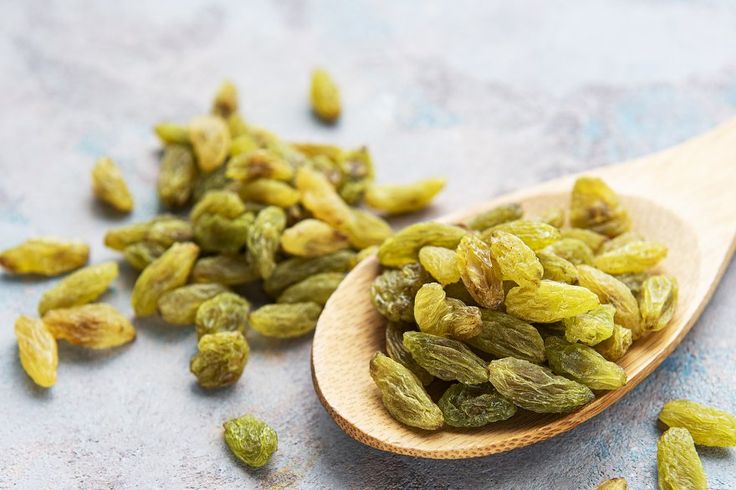Categories
The latest content
-

Customs Clearance & Import Regulations for Bulk Iranian Pinto Beans in EU, Middle East & Africa
..
-

Quality Control & Laboratory Testing Standards for Iranian Pinto Beans
..
-

Logistics & Shipping Solutions for Bulk Iranian Pinto Bean Exports
..
-

Minimum Order Quantity (MOQ) & Bulk Pricing for Iranian Pinto Bean Buyers
..

Tags
Required Certifications for Exporting & Importing Iranian Raisins (ISO, HACCP, Organic, Halal)

In today’s global food industry, certifications are not just optional—they are essential. For importers and exporters dealing with Iranian raisins, compliance with international food safety and quality standards is critical. Certifications such as ISO, HACCP, Organic, and Halal serve as guarantees of product safety, authenticity, and reliability. Whether you are a bulk importer in the EU, a distributor in the Middle East, or a retail supplier in Africa, understanding the required certifications for Iranian raisins ensures smooth customs clearance, stronger consumer trust, and greater market competitiveness.
1. Why Certifications Are Crucial in Raisin Trade?
• Consumer Confidence: Buyers want assurance that products meet international food safety standards.
• Regulatory Compliance: Customs authorities often demand certified documentation before clearance.
• Market Access: Certifications open the door to competitive markets such as the EU, USA, and Gulf countries.
• Risk Reduction: Minimizes the risk of shipment rejections, fines, or delays.
Simply put, certifications act as a passport for Iranian raisins to enter global markets.
2. ISO Certification; International Standards Organization
ISO certification ensures that Iranian raisins are processed under standardized systems of quality control. The most relevant standard is ISO 22000, which covers:
• Food safety management systems.
• Hazard prevention across the supply chain.
• Consistency in product quality for international buyers.
Importers in the EU and North America often require ISO-certified suppliers to ensure global best practices in production and processing.
3. HACCP Certification; Food Safety at Every Step
Hazard Analysis and Critical Control Points (HACCP) certification is one of the most widely recognized food safety standards in the world. For Iranian raisin exports, HACCP certification guarantees:
• Monitoring of critical control points in raisin processing.
• Reduced contamination risks.
• Traceability of products from farm to final shipment.
Many supermarkets, distributors, and wholesalers require HACCP compliance as a prerequisite for business.
4. Organic Certification; Growing Global Demand
With consumers increasingly concerned about sustainability and health, organic certification has become a strong selling point for Iranian raisins. Organic certification confirms that:
• Raisins are produced without synthetic pesticides, fertilizers, or GMOs.
• Farms follow eco-friendly agricultural practices.
• Products comply with EU Organic and USDA Organic regulations.
Organic raisins often command higher wholesale prices, making them attractive for premium buyers.
5. Halal Certification; Essential for Muslim Markets
For countries in the Middle East, North Africa, and Southeast Asia, Halal certification is crucial. It verifies that:
• Raisins are processed and packaged according to Islamic principles.
• No non-Halal substances are involved in production.
• Products are acceptable for Muslim consumers.
Halal-certified Iranian raisins enjoy strong demand in GCC markets such as the UAE, Saudi Arabia, and Qatar.
6. Additional Certifications That May Apply
Beyond the core certifications, some markets may require:
• Kosher Certification – For Jewish communities in the USA, and Europe.
• BRC (British Retail Consortium) – Required by major UK retailers.
• Fair Trade Certification – For socially conscious buyers, especially in Europe.
Exporters who hold multiple certifications increase their global competitiveness.
7. How Certifications Impact Pricing and Trade?
While certifications increase costs due to audits and compliance processes, they also:
• Enhance market reputation.
• Allow suppliers to charge premium prices.
• Reduce risks of shipment rejection at customs.
For importers, paying slightly more for certified Iranian raisins ensures reliable delivery and consumer trust.
8. The Role of Certifications in Customs Clearance
One of the most overlooked benefits of certifications is faster customs clearance. Shipments accompanied by internationally recognized certificates face fewer delays and inspections. This results in:
• Reduced port storage costs.
• Quicker delivery to end buyers.
• Lower risks of fines or product seizure.
9. Tamila Agrifood’s Commitment to Certified Quality
At Tamila Agrifood Company, we ensure that every shipment of Iranian raisins complies with the highest international standards. Our certifications include:
• ISO 22000 for food safety management.
• HACCP for preventive risk control.
• Halal certification for Middle Eastern markets.
• Organic certification upon request for premium buyers.
We provide complete documentation with every shipment to guarantee hassle-free customs clearance.
Conclusion
For importers, certifications are not just paperwork—they are the foundation of a trustworthy and profitable raisin trade. Whether it’s ISO for global quality, HACCP for food safety, Organic for sustainability, or Halal for Muslim markets, these certifications ensure that Iranian raisins can compete and thrive in international markets.
At Tamila Agrifood Company, we deliver more than just raisins, we deliver certified excellence trusted by buyers across Europe, the Middle East, and Africa.
Email: tamilaagrifood@gmail.com
Call / WhatsApp: +989141858935



